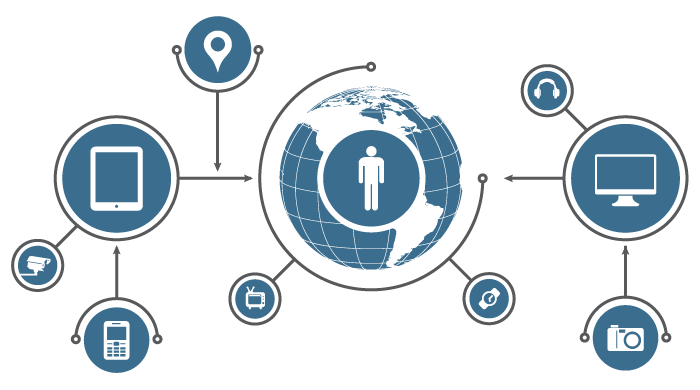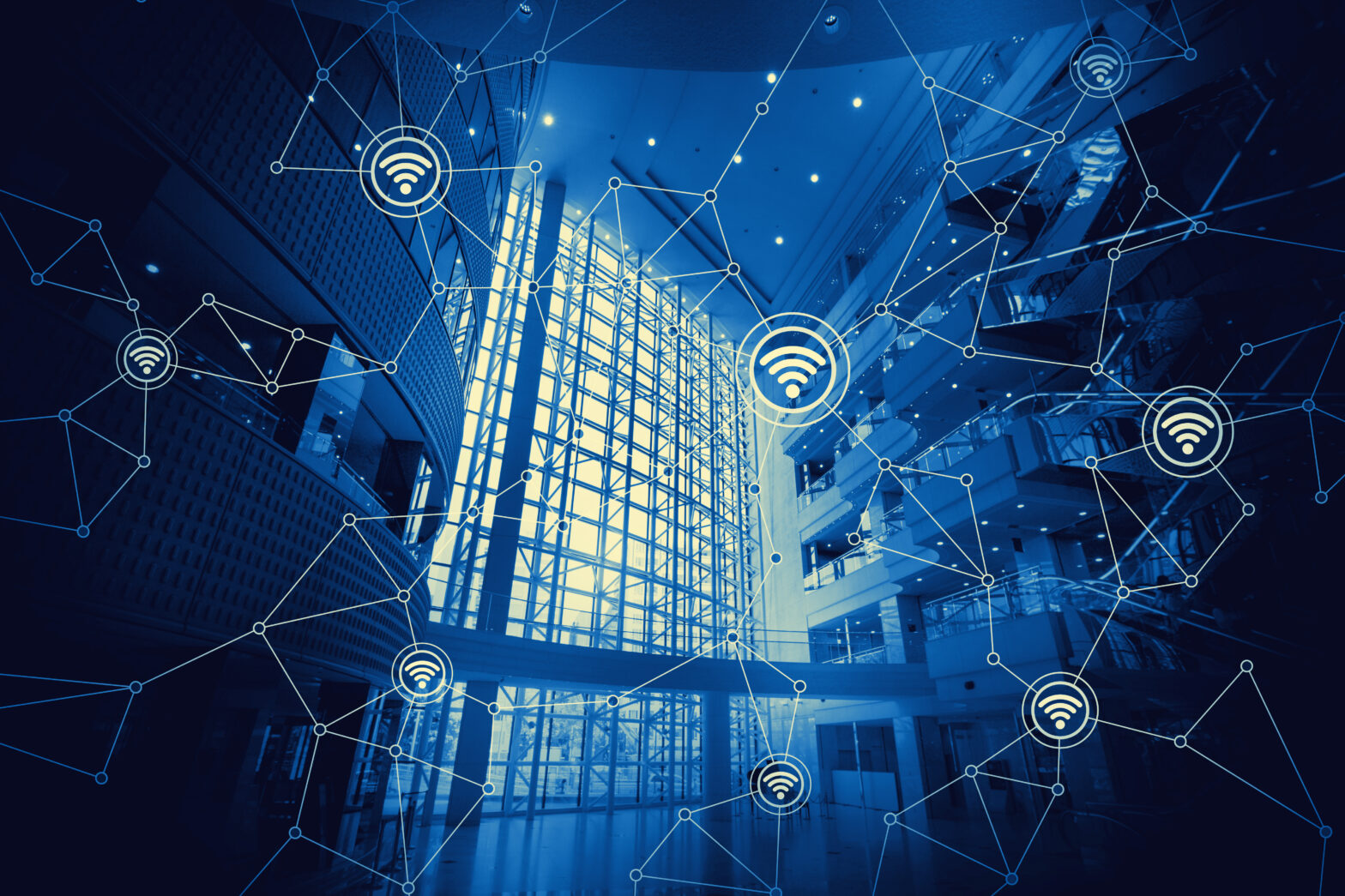‘Presenter sits down. Presenter stands up. Presenter sits down again.’ For one day, a Twitter account diligently documented a day in the life of a chair, albeit not just any chair: one used on a television programme. That said, it was probably not a very comfortable chair given the brief sessions it was being sat on.
While some may see it as yet another indication of the dross all too readily spewed out by automated Twitter feeds, it was at its heart an experiment by the BBC’s flagship news programme, Newsnight, to illuminate the subject of the Internet of Things (IoT).
The chair – which managed to attract 650 Twitter followers – had been hooked up to a pressure sensor and a connectivity platform by online database services firm Xively, firing off tweets detailing every time the chair was sat on or vacated.
This has become typical of how the Internet of Things is frequently portrayed – where sensors are placed on unexpected devices and, more often than not, the results are less than stimulating. But what many people may have missed, amid such snooze-inducing exemplars, is that the Internet of Things is already happening all about us.
Fortune 100 firms are already investing significant sums and generating tangible business value, says Charles Brett, an analyst with research firm Freeform Dynamics. ‘But most of the spending is going into oil platforms, pipelines or aircraft engines – the type of things that most consumers don’t have any visibility into.’
>See also: Is the Internet of Things too big an idea?
The notion that significant IoT spending might be going on unnoticed by the masses is a view backed by analyst house IDC. In a recent report, it predicted that global spending on IoT technology would hit $8.9 trillion by 2020 – an eyebrow-raising figure no doubt, but the firm also suggested that in 2012 IoT spending had already topped $4.8 trillion. There’s clearly more going on than chairs that tweet.
As it happens, IDC’s estimates for IoT spending cover the whole ecosystem of technologies that go into creating a connected planet. That means the plethora of sensors and smart devices that generate data, the communication systems used to move that data around and the computing and storage capabilities needed to analyse the information.
Needless to say, it’s an opportunity that has attracted industry heavyweights, such as Cisco with its Internet of Everything spiel and IBM with its Smarter Planet initiatives. ‘We’re still at the early stages, but it’s already apparent that the opportunities are huge: to increase employee productivity, increase asset utilisation, create supply chain efficiencies, etc,’ says Ian Foddering , chief technology officer at Cisco.
Driving it home
Instead of being a mechanism to bring inanimate objects kicking and screaming into the public gaze of social media, this vision of the Internet of Things is predicated on connecting a vast panoply of items whose status we do care about – such as in our homes.
The most obvious example is, of course, the smart meter, where Internet connectivity promises to deliver us far greater control of our energy use. But it too offers up some off-the-wall suggestions for how the deployment of sensors will change businesses, says Foddering.
He points to the example of an internet-connected cow. This isn’t for some bovine eBay experiment but rather a health-monitoring programme. ‘Cows have evolved so that they don’t visibly display illness. That’s useful in a herd, where an attacker will be looking to pick off the weakest animal. But it’s more awkward for the farmer who wants the best for his animals. If you can connect a remote health monitor, perhaps you can spot diseases before any damage is done,’ says Foddering.
Realistically, while Cisco is happy to trumpet the wealth-creating opportunities that the IoT will bring to its customers, part of the reason that it’s so exited is that it sees sales opportunities in the technologies that will underpin these developments, from the networked connections of objects to the moving, security and analysis of the data created.
However, one aspect of the Internet of Things is made conspicuous by the technology giants’ ambivalent attitude: the sensors. ‘It’s not an area we’re focused on right now,’ confides Foddering.
>See also: IBM, Cisco and the business of smart cities
The lack of interest in sensors is mirrored by other tech heavyweights. For example, IBM recently unveiled a do-it-yourself kit to allow users to test and deploy sensor networks, the Waspmote Mote Runner. This was trumpeted as a means to attract interested parties with an easy-to-use system.
But tellingly, IBM developed the software, leaving the hardware such as sensors to its partner, Libelium. Alcatel-Lucent, meanwhile, prefers to focus on the partnerships needed to build an IoT, emphasising the value of service providers. Most major vendors appear to doubt that there is money to be made from building out a sensor network with billions of nodes.
A tough sell
So why the reticence? The answer is simple: profit, says Freeform’s Brett. While the ability to deploy countless sensors to understand the behaviour of objects is fundamental to the IoT, the sensors themselves offer vendors limited chance to make money.
And even on the networking side, where vendors such as Cisco might be expected to expand, recent experience has taught them to be more cautious, says Brett. He points to the deployment of IPv6-capable infrastructure. ‘Without IPv6, there is no Internet of Things. It can’t be done with IPv4 address space.’ But IPv6 has proven to be a tough sell to date, he adds. Firms have been unwilling to splash out on complex upgrades where little benefit is perceived.
Firms are far more likely to be willing to invest in IoT services, predicts Brett. ‘When you think about the complexity involved, why would an energy company want to create its own smart grid? It makes far better sense to have someone else build it.’
It may seem paradoxical, but the idea that services will be the big money-making opportunity for the Internet of Things has been recognised by hardware and software makers, such as Cisco.
When we get to the point where almost every facet of our waking lives is recorded and analysed, people will want some sort of control, says Cisco’s Foddering. But the complexities of the Internet of Things make it likely that it will be too much effort for most people to delve too deeply into.
>See also: Privacy, smart meters and the Internet of Things
‘The Internet of Things is going to challenge how people think about privacy,’ says Foddering. ‘There’s a very real need for someone who can act as a trusted intermediary, helping individuals share data that will help improve their lives, but not compromise their privacy.’
There may indeed be money to be made from acting as a trusted data broker, adds Brett, and the importance of the free flow of information is fundamental to the Internet of Things. ‘It’s not yet clear who would be able to earn the necessary trust,’ he warns.










